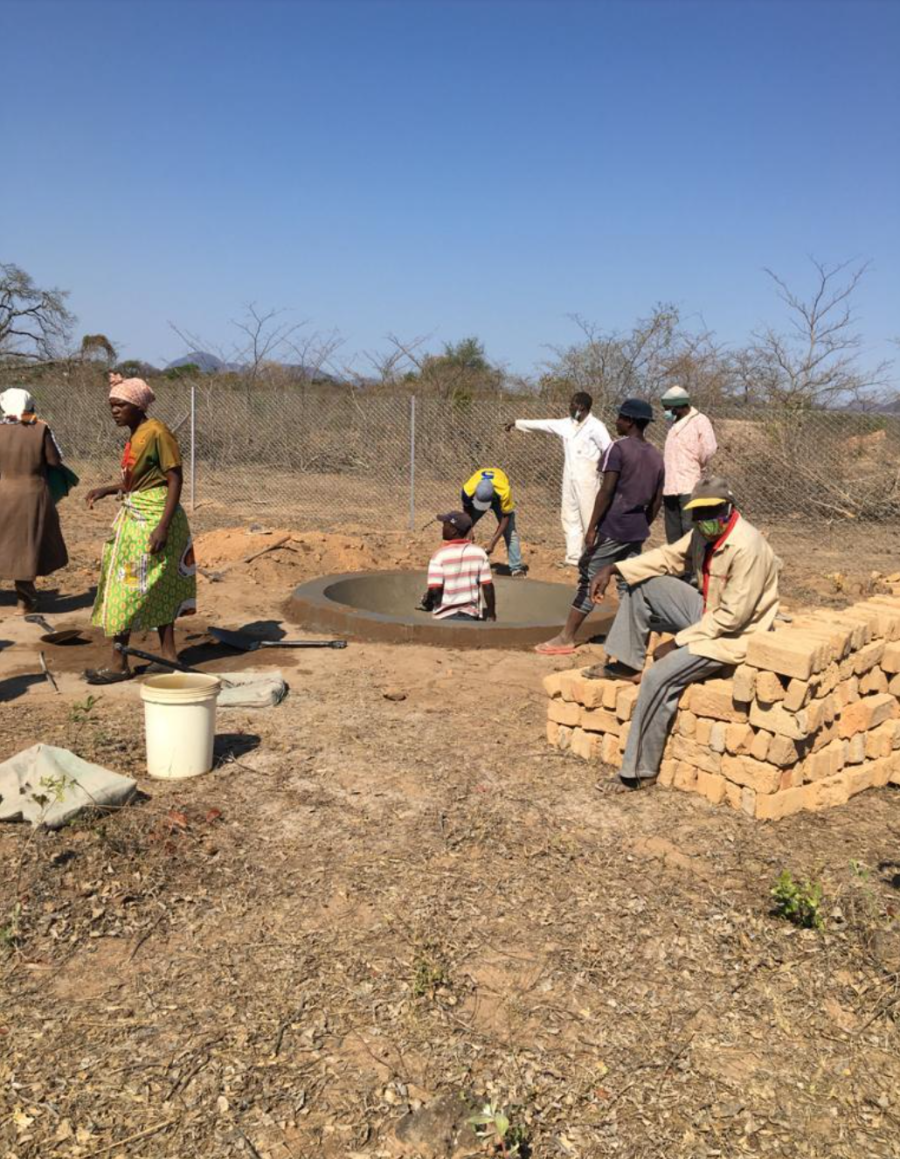As Zimbabwe enters the 1990s, its government is being pulled in two directions. On the one hand, poor economic performance has led to enormous pressures to radically redesign economic policies. On the other hand, although the voices of the urban and rural poor haven't been heard much, disenchantment - with growing unemployment, rising prices, shortages of essential goods, and a crumbling transportation system - has undoubtedly grown. The government's resettlement program has hardly alleviated land pressure in the Communal Lands (the densely settled former reserves), and crippling droughts have added to the burdens of rural households.
The ruling party, the Zimbabwe African National Union (Patriotic Front) - ZANU (PF), desperately seeks to retain the popular support it enjoyed at the time of independence in 1980. But given that the strong medicine of structural adjustment has a number of unfortunate shorterm side effects - rising prices, fewer jobs, more expensive imports, and so on - the government has a problem. Its response has been threefold.
First, it has attempted to design policies that balance economic reform with social programs. Second, it has tried to close down avenues of dissent. Although the government has had to pull back from legally enforcing a one-party state, it has continued to intimidate opposition forces. Third, to retain the support of the rural population, it has reiterated its commitment to radical land reform.
This is the terrain on which a debate over communal tenure and its place within a land-reform program is now taking place. Some kind of communal tenure system has many advantages for rural producers in Zimbabwe, and attempts to do away with it altogether can be expected to meet with fierce resistance.
Zimbabwe is in a period of transition, but toward what? Until clearer answers to this question emerge, proposals for reforming communal land tenure are unlikely to move beyond the realm of debate.
POST-INDEPENDENCE CHANGES
In precolonial Zimbabwe, there was never a single unified, well-defined tenure system that could be labeled "traditional." Before colonial rule, some chiefs ruled as despots, and many households had no secure land rights at all.
After settler rule was established in the 1890s, some households themselves began selecting their own fields, although grazing remained communal. The system allowed individual entrepreneurs who held large areas of arable land to emerge. Subsequently, the colonial state helped chiefs and headmen regain some of their powers, giving them control over the allocation of homestead sites and arable land. However, these chiefs and headmen met resistance from the entrepreneurs and from groups of senior men who were closely related and lived in clusters of homesteads.
Later in the colonial period, the state linked the powers of village headmen over land allocation to responsibility for village tax collections, with ruling families appealing to tradition to justify this. This state consistently acted to prevent inequalities in land holding from growing so large that they would threaten many households with landlessness. That would have destabilized the migrant-labor system, which depended on migrants having a rural base.
After independence in 1980, elected district councils and village development committees gained the power to allocate fields and control the use of common grazing lands. In practice, though, many village headmen continue to do this, even though it is illegal.
The definition of the group within which rights to arable and grazing land may be claimed has also varied. In the colonial period, chiefdoms gave way to large clusters of homesteads ruled by patriarchs (senior men within an extended family). The colonial state then grouped these homesteads into "villages" (also known as kraals), which in turn were grouped into wards and chieftaincies for administrative purposes. By the 1980s, most rural people accepted these villages as legitimate. Increasingly, specific areas of the common were seen as belonging to specific groups of people - either village sections, whole villages, or groups of villages. Today, the definition of what constitutes a "community" within which land rights can be claimed is controversial. In some areas, "tradition" is strong and only those who come from a particular "community" can claim rights; in others areas, a lot more flexibility is exhibited. In a few areas, cash transactions allow outsiders to gain entry into a community and own particular fields.
The extent to which women have claimed land in their own right has also varied and remains inconsistent. In some places, widows have relatively secure rights over land they use, and even divorcees can claim land in an exhusband's village. In other regions, widows' rights are insecure, and divorcees must return to their parents' homes.
POLITICS OF COMMUNAL TENURE
Clearly, communal tenure has many advantages for rural households engaged in a variety of economic activities, including agriculture and wage labor. but the details of how this system works in practice vary greatly historically and regionally, Competing definitions have led to complex struggles. "Tradition" is often used to justify a particular position, but the colonial state actually introduced much of what is now called traditional.
More important than tradition is the flexibility of communal tenure. However, the price of flexibility is ambiguity. Since independence, ambiguities have multiplied, and government politics have muddied the water. new laws direct district councils to allocate land in the Communal Lands but require applying unspecified "customary rules" when doing so.
As agrarian reform again becomes a political hot potato, resolving these ambiguities is a matter of urgency. A number of interest groups are arguing for changes in the tenure system to suit their own needs or their own visions of how economic development can best be encouraged.
The rural elite, which has been largely responsible for Zimbabwe's "peasant miracle," wants individual titles to arable and grazing land on the grounds that these titles are essential for security, investment, and proper resource management. This group has powerful allies in government and the commercial farming sector. This proposal appeals to some because it moves in the direction of a land market and market-based development.
Some environmentalists argue that communal tenure is responsible for ecological degradation in the Communal Lands. Thus, they push either for limiting livestock numbers or individualizing land rights.
Chiefs, who are making a political comeback, regained their judicial powers under customary law in 1990. They now are fighting hard to regain control of land allocation as a crucial prop to their power and status.
Some government officials have proposed retaining the central features of communal tenure while increasing local, democratic control over allocation of use rights and management of the commons. The lack of material government support for the elected village development committees, together with the sometimes close links of these committees to the local branch of the ruling party, has undermined their effectiveness so far. Other reforms that have been proposed are the temporary withdrawal of rights to arable land by those in secure wage employment and the granting of equal rights to women.
What about the views of most Communal Lands residents themselves? Channels for making their voices heard are few, and in any case, the residents are likely to hold a variety of opinions. Some opinion surveys suggest that the most urgent need is simply more land, particularly for the next generation. Some people are perturbed by the fact that individuals plots are beginning to be bought and sold, and most are resolved that the grazing commons remain a community resource and be privatized.
The meaning of "communal" continues to be contested in Zimbabwe, and the outcome is far from clear. Power plays are taking place at the local level as chiefs, village headmen, district councilors, and village development committees all seek the power to allocate fields and define grazing land limits. Individuals and clusters of related households continue to devise strategies to gain access to and control over land.
NATIONAL POWER PLAY
At the national level, various interest groups are also engaged in power plays, invoking ideologically charged notions such as ecological degradation, market rationality, or democracy. The object of debate is a land-reform package the government will presumably announce at some point.
However, the Zimbabwean state is experiencing a crisis of capacity that affects all programs, whether in relation to land reform, trade liberalization, or AIDS. Government departments face a severe shortage of the money, skills, and new thinking required to carry out institutional reforms and back them up with appropriate support services. This, as much as anything else, limits the prospects for radical changes in communal tenure.
The most likely outcome of this period of uncertainty is that the tenure system in the Communal Lands will retain its core features but remain ambiguous in its details. At the local level, the question of who manages to manipulate this ambiguity to their own advantage will continue to depend on the balance of power within villages, communities, and districts. And there is likely to continue to be a great deal of regional variation in how the system actually works.
Article copyright Cultural Survival, Inc.


